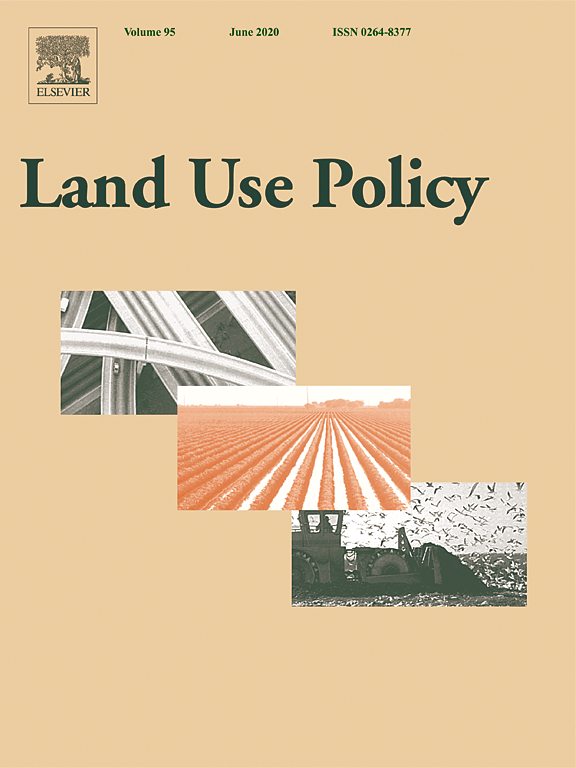Location
Land Use Policy is an international and interdisciplinary journal concerned with the social, economic, political, legal, physical and planning aspects of urban and rural land use. It provides a forum for the exchange of ideas and information from the diverse range of disciplines and interest groups which must be combined to formulate effective land use policies. The journal examines issues in geography, agriculture, forestry, irrigation, environmental conservation, housing, urban development and transport in both developed and developing countries through major refereed articles and shorter viewpoint pieces.
Land Use Policy aims to provide policy guidance to governments and planners and it is also a valuable teaching resource.
ISSN: 0264-8377
Members:
Resources
Displaying 146 - 150 of 279Improving agricultural pollution abatement through result-based payment schemes
Action-based payments that compensate farmers for adopting land-management measures to preserve and enhance the environment have been criticized for being ineffective. The root of the problem is that farmers are not paid for achieving a desired environmental benefit, but compensated for their costs of management. There is growing interest in formulating result-based economic incentives.
A local perspective on drivers and measures to slow deforestation in the Andean-Amazonian foothills of Colombia
Colombia’s Andean-Amazonian foothills are among the most pressing deforestation hotspots in the country. Yet, the relationships and dependencies of underlying deforestation drivers are not well understood. For an adequate territorial reorganization in the post-conflict era that is sensitive to local context, a targeted analysis of the present situation at the local level is required. This study investigates direct and indirect deforestation drivers, relationships among these and potential measures to lower deforestation post-conflict.
The local costs of biodiversity offsets: Comparing standards, policy and practice
Biodiversity offsets seek to counterbalance loss of biodiversity due to major developments by generating equivalent biodiversity benefits elsewhere, resulting, at least in theory, in ‘no net loss’ (or even a ‘net positive gain’) in biodiversity. While local costs of major developments themselves receive significant attention, the local costs of associated biodiversity offsets have not.
Myths on local use of natural resources and social equity of land use governance: Reindeer herding in Finland
Previous literature on social equity has focused on procedure, distribution and recognition related to land use governance. We propose novel approach to examine social equity by following ideational turn with an aim to explore globally used and locally persistent myths that (mis)inform governance in practice and effect on the three dimensions of social equity for reindeer herding in northern Finland.
EU’s rural development policy at the regional level—Are expenditures for natural capital linked with territorial needs?
The restoration and improvement of natural capital (NC) in rural areas represents one of the main objectives of the EU’s rural development policy (RDP). In addition to creating environmental and biodiversity benefits, NC represents an important territorial asset and a basis to generate socio-economic second-order effects for economic competitiveness and rural viability. However, the regional capability to valorise NC depends on the specific regional context, needs and potentials, as well as targeted policy support.



